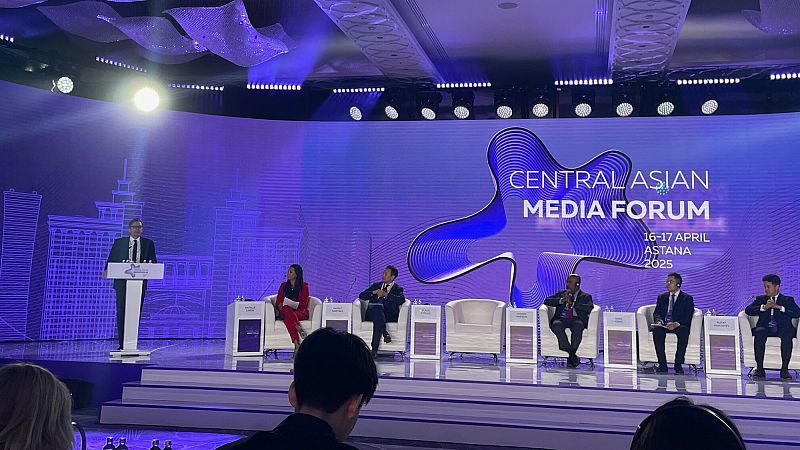

In a world saturated with false reports, manipulated data, and deepfakes, news organizations ought to serve as reliable sources of facts. Maintaining audience confidence through transparent and validated reporting remains crucial now more than ever.
Many participants at the Central Asian Media Forum, which took place in the Kazakh capital of Astana, echoed this viewpoint.
Journalists, technology specialists, and governmental authorities deliberated over the increasing significance of the area on the worldwide stage, highlighting the distinctive narratives it has to offer.
Claus Strunz, the CEO and Editorial Director of Euronews, stated, "This area undeniably forms part of the global media scene and is among the quickest expanding regions in this field."
"And so, it's very interesting for us to take part in it, to be a partner, to maybe give impulses and to work together with the people in this beautiful country and to learn from each other."
Serving as a meeting ground for information ministers of Central Asian countries, the forum addressed the problem of the spreading of false information.
"Aida Balayeva, Kazakhstan’s Minister of Information, highlighted that one prevalent issue across all Central Asian nations, as observed in recent developments within mass media, is the dissemination of incorrect and misleading content along with inflammatory messages via social platforms and messaging applications," she stated.
Other cabinet members supported her view, stressing the importance of tackling the dissemination of false information. They highlighted how quickly AI technologies, particularly deepfakes, could be misused, underscoring the necessity of educating people about media literacy and verification techniques.
Meanwhile, those involved in the discussion explored the advantages and possibilities that AI offers.
The way people consume information has shifted. Algorithms now dictate much of what readers see. As a result, publications must adapt, trying to find the balance between crafting compelling stories and optimising them for search engines.
"In the view of the conventional journalistic approach, this naturally presents a challenge for us. However, it’s not about pitting new technology against journalism; rather, I believe we should perceive it as an opportunity to simplify our work,” stated Rufat Khamzayev, who leads the AnewZ TV channel in Azerbaijan.
Experts have indicated that journalists can utilize AI to enhance and expedite their workflow, however, they should not let it take over their tasks entirely.
"Journalism can thrive from this if utilized appropriately, responsibly, and accurately. Conversely, it could undermine journalism if relied upon without being integrated into an unbiased framework. As humans, we hold the steering wheel; we are not bound by technological dictates. We determine the course of action and mold the terrain of tomorrow’s media environment," Strunz stated.
As the media environment keeps evolving, the forum acted as a pertinent reminder that although technology provides potent instruments, it is essentially our human duty, honesty, and teamwork that will define the future of reliable journalism.

Our website uses cookies to improve your experience. Learn more